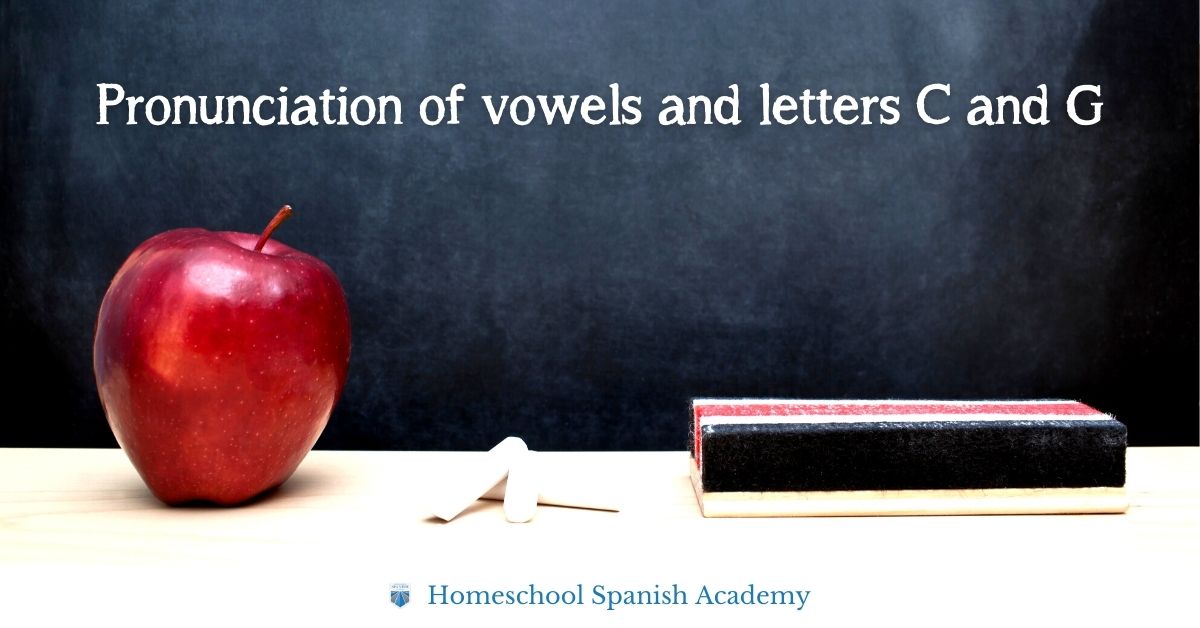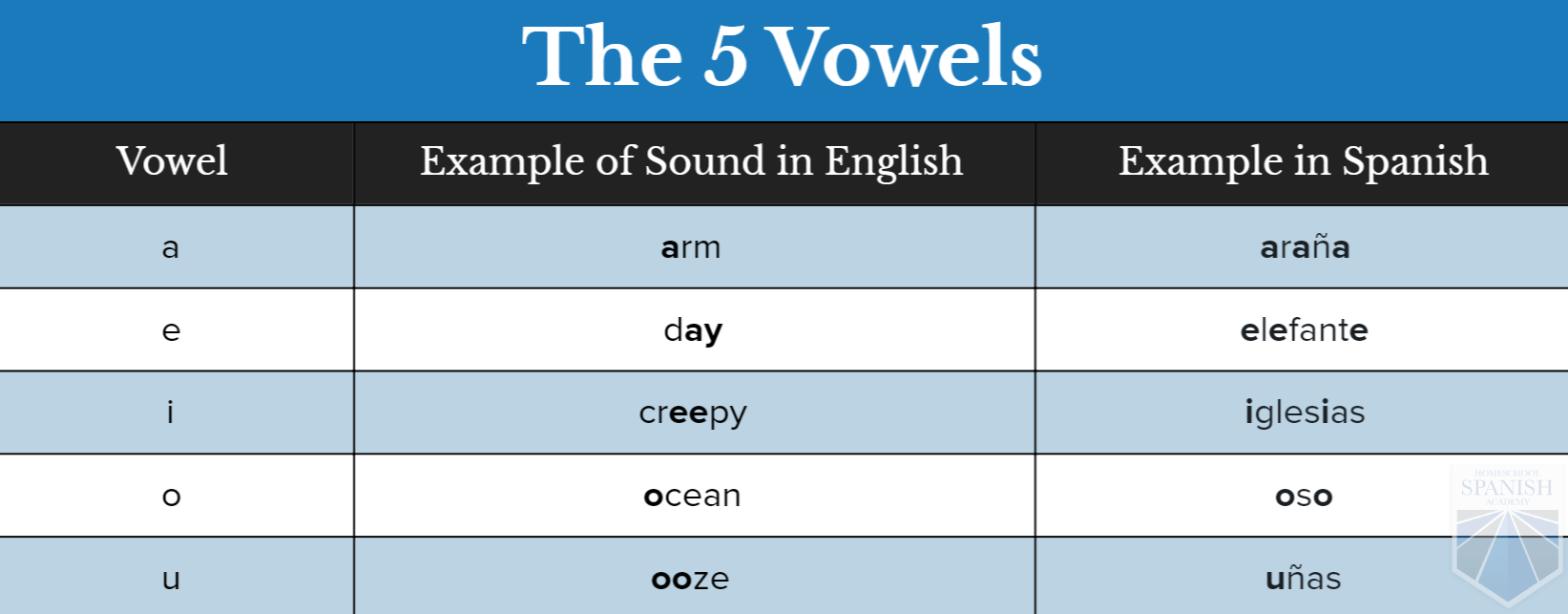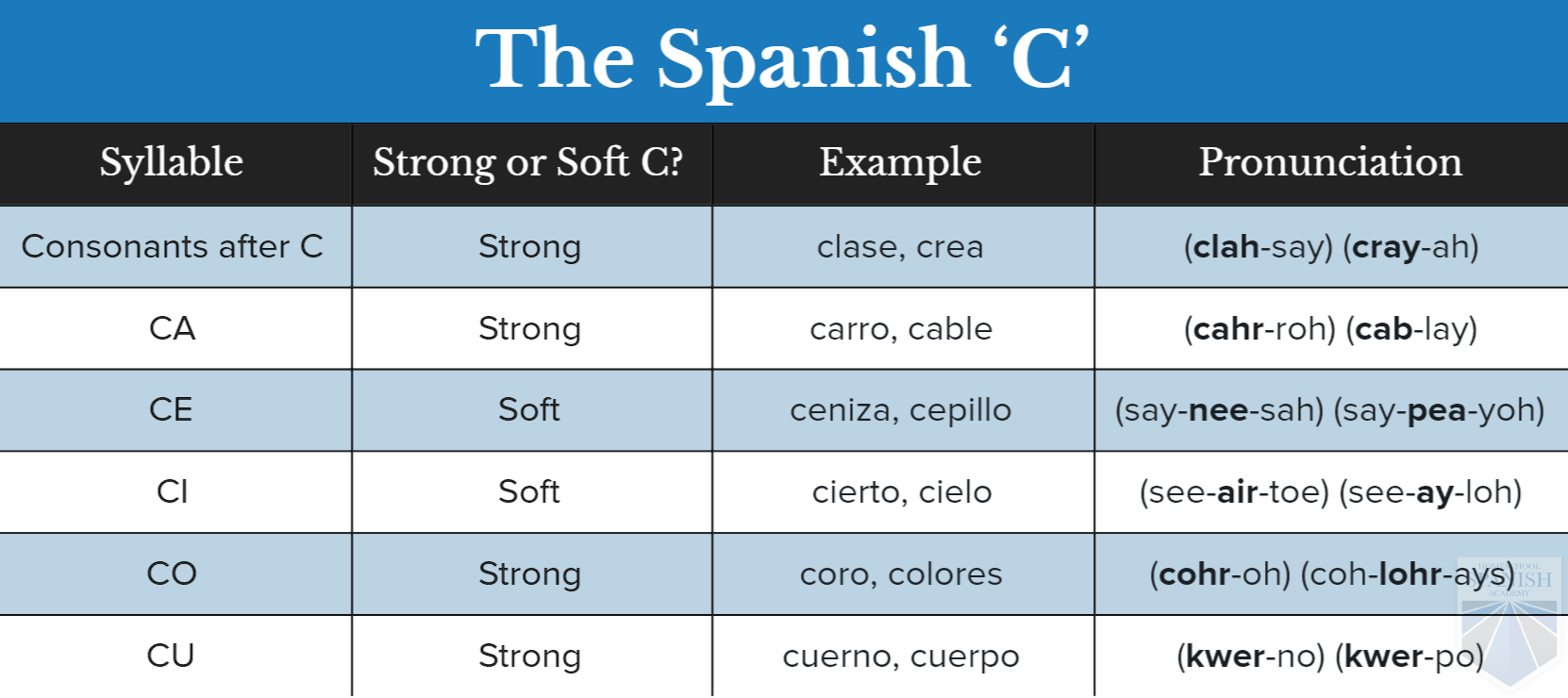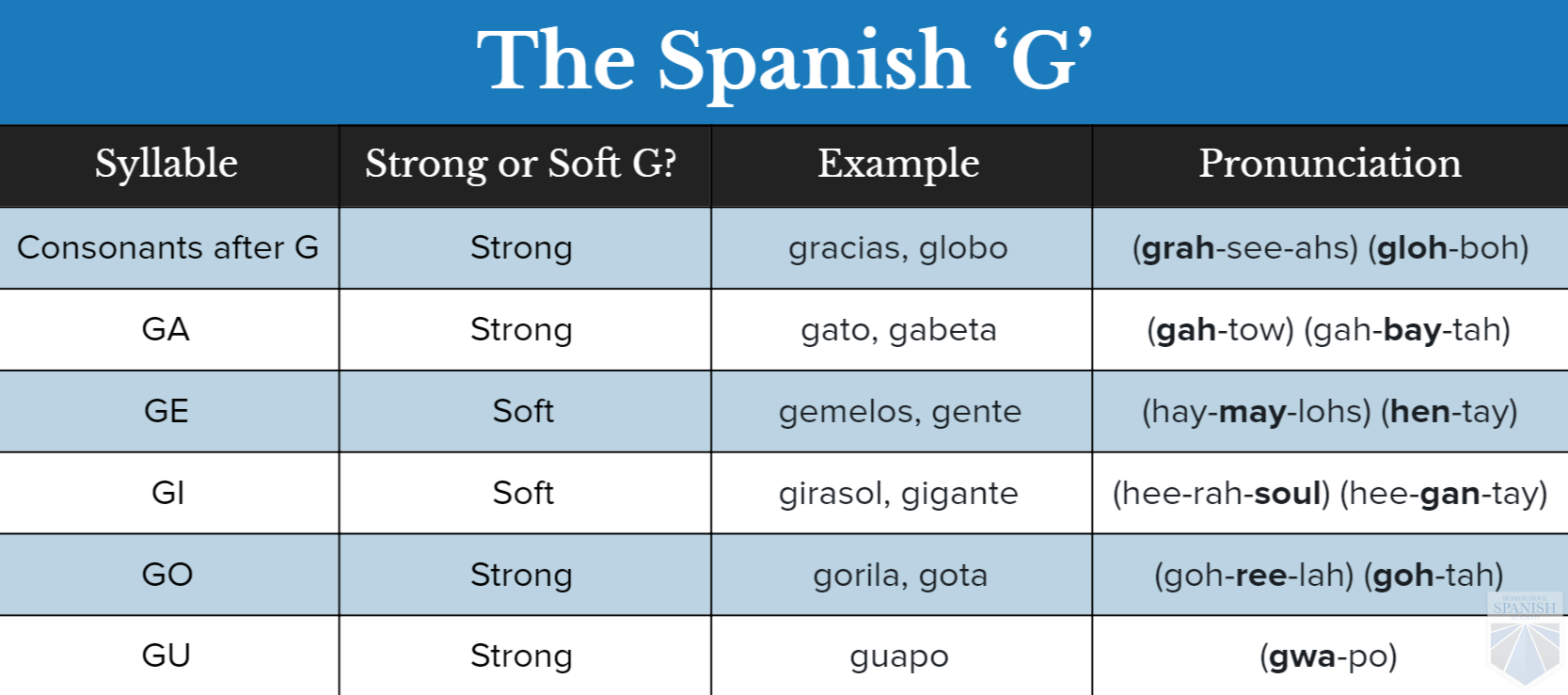
Pronunciation of vowels and letters C and G
As a native Spanish speaker, I’ve had the pleasure to work with people from all over the world. One of the common themes that I see my coworkers struggling with is Spanish pronunciation of vowels. Now, this is not because it’s a hard language to speak, but because they can be a little shy about their accent. From my experience, most Latinoamericanos greatly appreciate when a person makes an effort to work on their pronunciation, even if it’s not perfect. The best way to improve your Spanish pronunciation is to talk, sing, and interact with people in the language. By reading the following guidelines, you’ll have the edge you need to skyrocket your pronunciation skills to a whole new level!
5 vowels, 5 sounds

Vowels in Spanish are one of the simplest concepts to learn, but when your native tongue has several ways to say the same letter, like those tricky English vowels, it can become confusing. To make things a bit easier, you’ll find a chart below with English words that contain the appropriate vowel sounds for Spanish:

The letter ‘u’ can be tricky. In English, the ‘u’ sounds like ‘you’, but in Spanish, the sound is more similar to ‘oo’. Think of “A spooky ghost saying boo!” as a fun phrase that will help you with pronunciation. Many Spanish learners struggle with the pronunciation of vowels. What helps them get better is to focus on the 5 basic sounds when speaking. A great word to practice with is murciélago (bat) because it has every single vowel in it! So if you want to practice, remember the pronunciation ‘moor-see-ay-lah-goh’. Once you master that, you’ll be ahead of the Spanish game!
These words give you a rough understanding of the sounds attributed to each vowel in Spanish. Now, how do you even start to polish these sounds? A well-known method that is also fun to do, is singing! You can try singing along to the Spanish version of “A Whole New World” sung by our Spanish experts, as well as the timeless classic Cri Cri, used to teach Spanish to kids all over Latinoamérica.
Let’s see the letter C
The letter ‘c’ in Spanish has 3 different pronunciations. Much like in English, there’s the soft ‘c’, the hard ‘c,’ and the ‘ch’ sound. The pronunciation for the soft ‘c’ is much like the ‘s’ in English, and the hard ‘c’ sounds a lot like a ‘k;’ the ‘ch’ sound is the same one as in English too. Below you’ll find a handy chart with examples for the different kinds of pronunciation!

The last sound in this chart, ’cu’, has a sound that is exactly the same as the ’kw’ in English. Words like ’clockwise’ and ’kwanza’ are good examples. The ‘ch’ sound is much like the English sound for those letters. Words like chalice, champion, and clutch all have the same ‘ch’ sound as the Spanish words chile, chocolate, and chicle (pepper, chocolate, and gum).
Did you know?
One of the first differences between Spanish and Latino accents is the way we pronounce our Cs? In Spain, they differentiate the ’c’ from the ‘s’, while in Latin America we use the same soft pronunciation for both! This is just an interesting nuance of the language in between continents and has no impact on understandability at all.
Pronouncing the letter “G”
When I was in middle school, I remember feeling overwhelmed when trying to learn the different ways the letter ‘g‘ is used. While it is not hard by any means, it does require some memory and practice before it becomes second nature. The basic rules for the ‘g’ are similar to the ‘c,’ so try mastering the ‘c’ pronunciation before this one to minimize the difficulty at the time of practicing.
There are two main sounds with this letter: the strong and soft ‘g.’
The strong ‘g’ is probably the easiest one to start with because it’s exactly the same as the ‘g’ used in English. The word ‘gulp’ is the perfect example of how the soft G should be pronounced. The soft ‘g’, on the other hand, is a sound that is not found in the English language by default. So, how does the soft ‘g’ even work? The fastest way to learn this is by hearing it in our detailed video about Spanish pronunciation! To give you an idea of what a strong ‘g’ sounds like, think about the letter ‘h’ in English. The soft ‘g’ is like a raspier version of it.
When to pronounce a soft or strong G?

Special use of G
Now we know when a ‘g’ should be strong or soft! Sometimes, however, you’ll encounter words that will sound like ‘ge’ and ‘gi’ but with a hard sound. Oh no! How can we tell the difference?
There’s actually a very easy way to tell when you need to use a strong ‘g’ on these occasions, and it has to do with the letter ‘u.’ When you find a ‘u’ between ‘ge’ or ‘gi,’ that’s when you’ll need to use a strong G, while the U itself stays silent.

Did you know?
The concepts of strong and soft g are inverted in English and Spanish? What native Spanish speakers consider a ‘soft g’ is actually a ‘strong g’ if you’re speaking English! Keep this tidbit in mind and you may surprise your Spanish professor in your next class.
Practice time!
The great thing about learning a language is that you can learn it by interacting with others and connect with them. If you wish to learn more, and practice with some expert teachers, check out our Spanish learning programs. You can also sign up for a free class to a one-on-one class with one of our certified teachers!
Don’t forget: practice makes perfect! Keep practicing with our video!

Want to know more about Spanish grammar and vocabulary? Check these out!
- The 25 Most Useful Spanish Phrases You Need to Lear Today
- 50 Useful Spanish Transition Words for Everyday Speech and Writing
- Master the 18 Spanish Tenses (and Take Our Cheat Sheet With You)
- All About Adverbial Clauses in Spanish
- Top 20 Guatemalan Words and Slang Expressions You Should Know
- The Ultimate Guide to the Differences Between ‘Pero’ and ‘Sino’ in Spanish
- A Guide to Double Negatives in Spanish
- Ver Conjugation: Free Spanish Lesson, Exercises, and PDF
- Top 10 Science Fiction Spanish Books for Adults (with PDFs) - August 22, 2024
- 200+ Beginner Spanish Vocabulary Words PDF: Learn Spanish Fast! - August 15, 2024
- 60 Best New Year Quotes in Spanish 2024 - January 18, 2024




